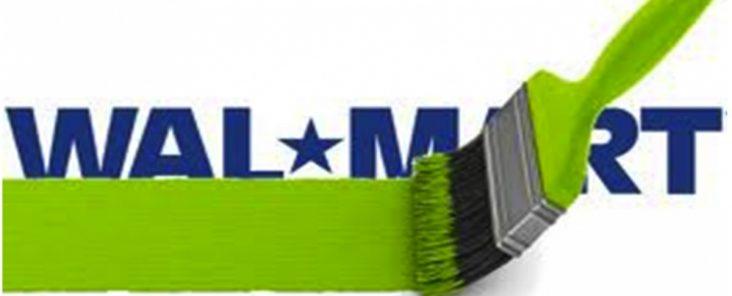Wal-Mart says 95% success rate in suppliers removing 8 toxic chemicals from consumer products
by July 20, 2016 5:46 pm 402 views

Wal-Mart Stores continues to crack down on suppliers who use toxic materials in their products. On Wednesday (July 20) the retail giant disclosed eight toxic substances that in 2013 it asked suppliers to eliminate from the products it buys and then sells in its stores. Since that time Wal-Mart said 95% of the “high profile” chemicals have been removed from consumer products.
Groups advocating for chemical bans in certain consumer products said this was the first time the chemical names have been released, as suppliers felt if consumers knew the exent of the list and widespread application of the chemicals the public may have panicked.
The list includes formaldehyde, triclosan and other certain phosphates such as diethyl phthalate which is used in cosmetics and aspirin. These three and five other controversial chemicals are on the retailer’s “high priority” list because of documented concerns over environmental and human health risks. Preservatives such a butylparabens and Propylparaben as well as Toluene found in nail polish and paint thinners, the solvent Dibutyl Phthalate and Nonylphenol ethoxylates round out the list.
Wal-Mart said Wednesday it created the list with help from the Environmental Defense Fund three years ago and its goal is to get suppliers to find other alternatives. Wal-Mart officials know the list is not perfect, but is a start in the right direction.
Environmental advocates applauded the effort, noting that back in 2013 Wal-Mart began the conversation with suppliers asking them to reduce about 15 to 18 chemicals found in personal care, beauty and household cleaners and look for less controversial, more natural alternatives. Despite the urging of consumer groups at the time Wal_-Mart would not make the chemical list public, appeasing to the pushback it got from some suppliers.
Mike Schade, director of the Mind the Store Campaign, a public coalition of more than 11 million consumers, health professionals and businesses, said Wal-Mart should be congratulated for its disclosure of the toxic list and efforts to reduce the chemicals by 95%, but the company can’t stop there. Schade told Talk Business & Politics that there are roughly 100 hazardous chemicals that still need eradicating from consumer products. He encourages Wal-Mart and other retailers to expand their chemical policies and continue putting nails in the coffins of the controversial substances.
“Walmart should expand its list of ‘High Priority’ chemicals to address other dangerous chemicals that scientists and doctors have linked to cancer, reproductive harm, and brain damage. We challenge other leading retailers to join Walmart in tackling these unnecessary toxic chemicals,” Schade said. “Big retailers like Walmart have the power to transform the marketplace and bring safer products into the hands of consumers across the world. Even with recent reforms, government actions aren’t going to keep pace with the urgency of the health threats posed by toxic chemicals, so more action like this is urgently needed from leading retailers.”
More than 700 manufacturers are impacted by the requirements and some 85,000 products from toothpaste to laundry soap are involved. Wal-Mart has not yet disclosed which suppliers are making the most progress finding natural alternatives.
While Wal-Mart has been working on the hazardous chemical issue for at least three years in conjunction with it’s overall broader sustainability goals which were launched in 2005, public pressure is now being exerted on other retailers to follow suit. Schade said consumers have a right to know what is in products they use and consume. He said the federal government has been lax in its efforts to enforce chemical usage. He said the recent signing into law the new Chemical Safety for the 21st Century Act is a baby step. While it’s important federal legislation, he said the scope of governance is limited to 30 hazardous chemicals and the pace of enforcement is likely to be “excruciating slow.”
“Wal-Mart using its size and power is likely able to move much swifter, they already have a big head start,” Schade said.
He expects to see state governments weigh-in and prohibit the use of some of the hazardous chemicals in consumer products, and the public outcry for greener alternatives is also gathering steam. Schade said Target and CVS are also getting on the bandwagon with chemical policies, but retail titans Costco and Amazon are behind with no chemical policy of any kind.
“It’s in retailer’s best interest to take chemicals seriously. It’s not just a public safety issue, it’s also a business issue. Think about the legal and reputation damages a retailer can sustain when consumers find out products contain harmful chemicals. You need not look any further than Lumber Liquidators and the excess formaldehyde contained in some of the flooring they sold. The CEO was forced to resign and the company suffered financially,” Schade said.
